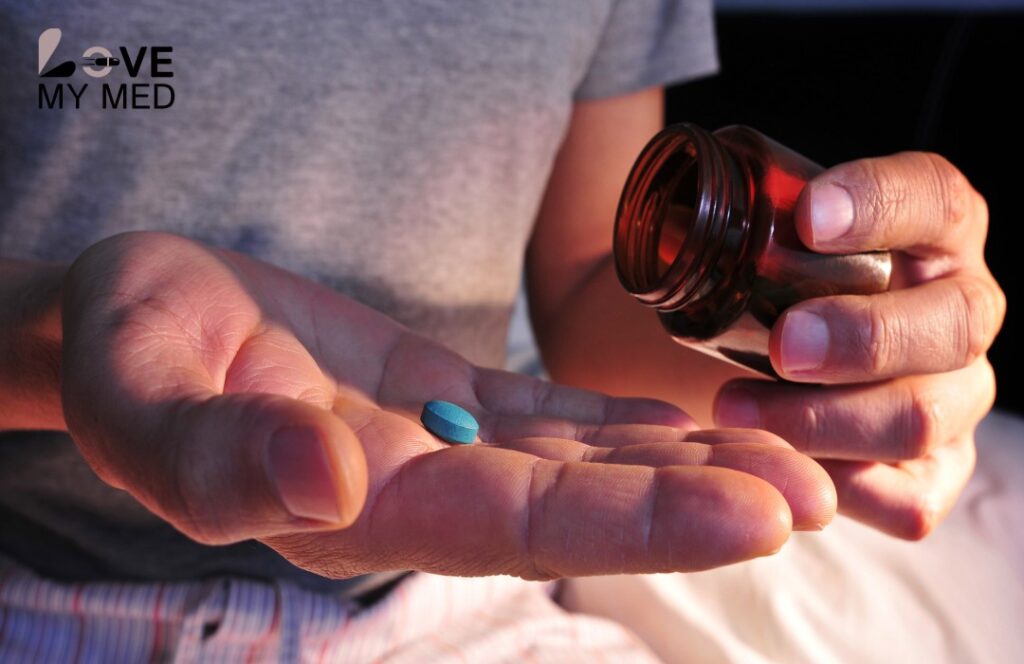The Treatment Of Erectile Dysfunction With Medicines

Erectile dysfunction (ED) is described as a man’s inability to achieve or sustain an erection sufficient for sexual engagement. It is prevalent in many men, particularly with increasing age. However, ED is manageable through various medications. In this article, we look at the classes of medications used to treat ED, their mode of action, and other considerations that should guide the selection of medication.
Key Takeaways for ED Treatment
-
First-line treatment: Oral PDE-5 inhibitors (e.g., Viagra, Cialis, Stendra) are highly effective for many men by enhancing blood flow—but require sexual stimulation to work. Mayo Clinic
-
Non-oral options available: Self-administered injections (e.g., alprostadil), urethral suppositories, and vacuum erection devices are practical alternatives when oral medications aren’t suitable or effective.
-
Penile implants and surgery are reliable long-term solutions for refractory ED, with satisfaction rates exceeding 90%, particularly after trying less invasive treatments.
-
Lifestyle changes and counseling matter: Quitting smoking, improving diet, exercising, treating underlying conditions, and sex or psychological therapy can significantly improve outcomes and address root causes. NIDDK
-
Emerging therapies are promising but need caution: Options like shockwave therapy, stem cells, PRP “P-shots,” and smartphone-controlled implants show potential—but lack strong evidence and aren’t mainstream yet.
Types Of Medications Used To Treat Erectile Dysfunction
Most ED patients are treated with drugs first. Most of these medications improve the erection by increasing blood flow to the penis. Below is a list of Erectile Dysfunction medication classes.
➡️ Phosphodiesterase Type 5 (PDE5) Inhibitors
The most common treatments for Erectile Dysfunction are PDE5 inhibitors. They prevent the action of the enzyme PDE5, whose action may restrict blood inflow to the penis. By inhibiting PDE5, these drugs prevent constriction of the penile muscles and permit greater blood flow, which aids in getting an erection if there is sexual stimulation.
Common PDE5 Inhibitors Include:
- Sildenafil (Viagra): The most famous Erectile Dysfunction medication. Takes effect in 30 to 60 minutes, lasts up to four hours. Best taken on an empty stomach.
- Tadalafil (Cialis): Long-lasting. The effect can last up to 36 hours. There is the option to take it as needed or daily, allowing for more flexibility.
- Vardenafil (Levitra): It is about as effective as sildenafil, but may be less side-effect prone for some people.
- Stendra (Avanafil): A newer medication that works in as little as fifteen minutes but lasts for a shorter period than other medications.
➡️ Alprostadil-Based Treatments
Alprostadil can serve as an alternative for men who do not respond to PDE5 inhibitors. This medicine works by relaxing particular muscles and increasing blood flow.
- Injectable Alprostadil: This injection is done at the base of the penis and achieves results between five to twenty minutes. An erection can be maintained for up to an hour.
- Alprostadil Urethral Suppositories: Those who are averse to needles may use a suppository where alprostadil is inserted into the urethra. The effect is similar to that of the injection.
➡️ Other Pharmacological Options
Other options can be explored based on individual preference.
- Testosterone Replacement Therapy (TRT): In men with low testosterone, TRT can restore balance, alleviating Erectile Dysfunction symptoms when low testosterone is the underlying factor.
- Flibanserin and Bremelanotide: Though they are primarily intended for women, these two can be prescribed off-label to men with diminishing sexual urges.
How Erectile Dysfunction Medications Work: Mechanism Of Action
Medications for ED are designed to enhance blood flow into the penis, thereby facilitating and sustaining an erection.
➡️ The Role of Nitric Oxide and cGMP in Erection
Penile erection is both a vascular and neurogenic phenomenon. During sexual arousal, the brain signals to release nitric oxide (NO) in the penis. NO stimulates the production of cyclic guanosine monophosphate (cGMP), a compound that causes relaxation of smooth muscle in the penis. This increases blood flow and causes an erection.
This places it in men with Erectile Dysfunction. This phase may not occur. Medications like PDE5 Inhibitors work by blocking PDE5, an enzyme that breaks down cGMP. More blood vessels in the penis are relaxed and open for longer, making it easier to maintain an erection.
➡️ PDE5 Inhibitors And Blood Flow
Inhibitors of these classes systematically block PDE5 enzymes and help increase cGMP levels. This enhances the potential for relaxation of the blood vessels. There is more blood flowing through them when aroused; therefore, there is increased blood to fill the penis. However, these medications work only when there is sexual stimulation, which means there is no spontaneous erection.
Popular Medications for Erectile Dysfunction
| Medicine | Generic Name | How It Works | Duration of Effect |
|---|---|---|---|
| Viagra | Sildenafil | Increases blood flow to the penis by relaxing blood vessels. | 4–6 hours |
| Cialis | Tadalafil | Enhances blood flow and allows more spontaneity due to longer action. | Up to 36 hours |
| Levitra | Vardenafil | Improves erectile response by boosting nitric oxide effects. | 4–6 hours |
| Stendra | Avanafil | Fast-acting PDE-5 inhibitor with fewer side effects for some men. | Up to 6 hours |
Note: These medicines should only be used under medical supervision. Consult a healthcare professional before starting any ED treatment.
Choosing The Right Erectile Dysfunction Medication: Factors To Consider
The decision for management of the ED requires several factors to be considered, and has to be guided by a noted physician.
➡️ Assessing Health Conditions And Medication Interactions
Before treatment, factors such as underlying health conditions also need to be looked at:
- Heart Disease or High Blood Pressure: Some PDE5 inhibitors can conflict with some medications for the heart, especially with the nitrates, which may cause very low blood pressure.
- Diabetes: Men with diabetes may have some degree of nerve damage, which can interfere with their sexuality. Testosterone treatment or other therapies may be required.
- Kidney or Liver Disease: Certain medications for ED could be metabolized in the liver and kidneys. If you have liver or kidney complications, your physician will likely reconsider the medication’s quantities.
Always report to your physician any other medications you are on, including any that are purchased without prescriptions, supplements, and vitamins.
➡️ Lifestyle Factors Influencing Medication Effectiveness
Lifestyle changes can enhance the effectiveness of ED medications. Consider these factors:
- Diet: Men who eat many fruits, vegetables, and whole grains, which improve arteries,s should embrace a heart-healthy diet.
- Exercise: Physical activities, including cycling and walking, help reduce stress, which can improve ED.
- Smoking and Alcohol Use: Cigarette smoking damages blood vessels, while drinking too much lowers blood flow. Medical benefits from quitting smoking and ED-related medicines prevail.
➡️ Personalized Treatment Plans
Customized Treatment Plans Every patient has his or her individuality, so they will not apply a single treatment, meaning they will change one or the other or add therapy or lifestyle changes, medication, or both.
Potential Side Effects And Risks Of Erectile Dysfunction Medications
While ED medications are considered safe, some side effects might arise. Most side effects are mild and temporary, while others may pose a greater risk.
➡️ Common Side Effects
- Headache
- Flushing
- Nasal Congestion
- Indigestion
Such side effects are short-lived and usually resolve within a few hours. However, if they persist or worsen, consider consulting your doctor.
➡️ Serious Risks
Although rare, some serious side effects can occur:
- Priapism: This is defined as an erection lasting longer than four hours. This is considered a medical emergency.
- Vision Changes: Some men report experiencing blurred vision or a blue color cast, particularly with sildenafil.
- Cardiovascular Issues: Low blood pressure is a common side effect. This problem is exacerbated when combined with nitrates.
- Hearing Loss: While rare, sudden hearing loss can be serious..
If experienced, side effects of this nature would require ceasing use of the medication and consulting a medical professional right away.
Lifestyle Changes To Complement Erectile Dysfunction Medication
Even though medicines are effective in treating ED, they work best when combined with healthy habits. To help your treatment, consider the following:
➡️ Diet and Nutrition
A healthy, balanced diet not only improves cardiovascular health but also erectile health as well. Foods that promote blood circulation, such as leafy greens, berries, and nuts, bolster ED.
➡️ Exercise And Physical Activity
Exercising regularly has also been shown to boost circulation, reduce the chances of developing ED, and improve overall health.
Try to include moderate physical activity for at least 30 minutes on most days of the week. Walking, cycling, and strength training will help maintain general health and improve erectile function.
➡️ Psychological Well-being
Mental health issues also significantly contribute to ED. Relaxation therapies or stress management techniques for anxiety and depression can improve ED symptoms. If mental health aspects are playing a part, consider psychotherapy or CBT.
➡️ Quit Smoking And Limit Alcohol Consumption
Poor blood flow due to smoking and excessive alcohol consumption is are significant factor in ED. Smoking cessation and moderating alcohol consumption can improve erectile function and increase the effectiveness of ED medications.
Frequently Asked Questions (FAQs)
1. Can Erectile Dysfunction Medications Be Taken With Alcohol?
Moderate alcohol consumption is not a problem; however, heavy drinking will hinder the effectiveness of these medications. One to two drinks is the recommended maximum.
2. Are Erectile Dysfunction Medications Effective For All Men?
Most men, particularly those with physical causes of ED, respond well to ED treatments. Those with psychological ED may require a combination of therapy and medication.
3. How Long Do Erectile Dysfunction Medications Take To Work?
- Sildenafil citrate (Viagra): 30-60 minutes
- Tadalafil (Cialis): 30 minutes, lasts up to 36 hours
- Vardenafil (Levitra): 30-60 minutes
- Avanafil (Stendra): 15 minutes
4. Can Erectile Dysfunction Medications Be Used Daily?
Tadalafil (Cialis) may be taken daily in low doses. Other medications, such as sildenafil and vardenafil, are taken as needed.
5. Can Erectile Dysfunction Medications Be Used With Other Treatments?
Yes, lifestyle changes in conjunction with therapy, hormone treatments, and ED medications work well together and can provide better results.
Conclusion
Like many other medical conditions, erectile dysfunction (ED) is common and treatable. Most men do respond to ED medications such as the PDE5 inhibitors or alprostadil-based treatments. However, the right choice of treatment is based on a man’s health concerns. Medications combined with healthy living, such as physical exercise, a nutritious diet, and stress reduction, will lead to better results.
If you have ED, do reach out to a healthcare professional who can help you navigate through your symptoms and confirm the most suitable treatments. The right solutions will lead to the successful management of this condition.





